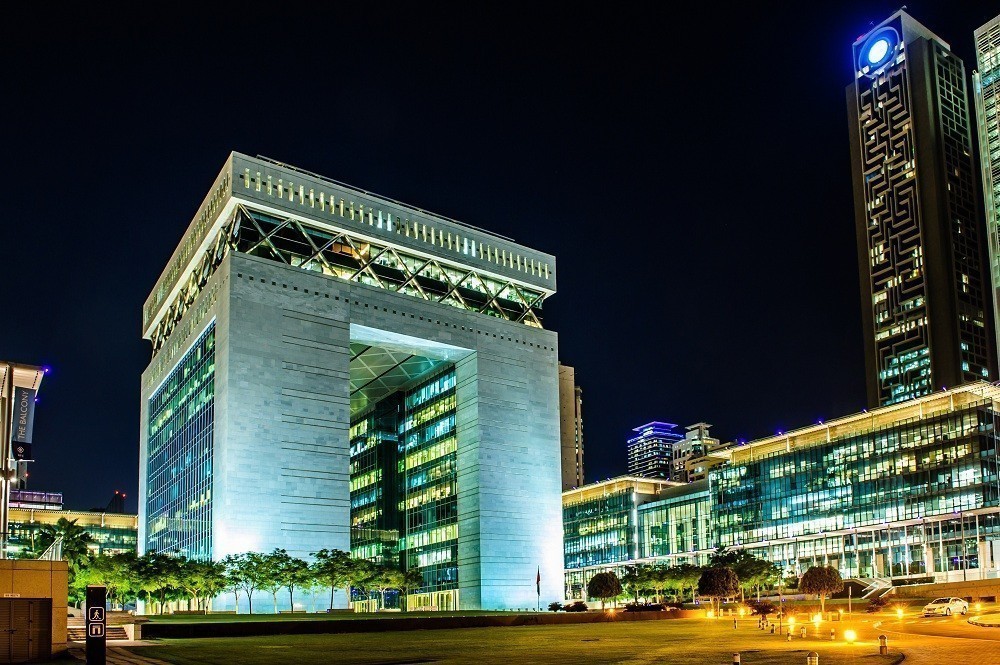
- India, Newsletter
- December 11, 2017
With greater digitization and formalization of financial activities and businesses, India is set to become an “extremely attractive” country to do business. These were the words of Arun Jaitley the honourable Finance Minister of India. Addressing the emissaries at the Singapore Fintech Festival, he further acknowledged the short-term challenges for the country in executing premeditated initiatives such as demonetization and the GST. He also emphasized that the companies looking forward to Company formation in India or to do Incorporation in India will be a recipient of massive benefits as the country is moving towards the digital revolution with an increase in digital payments that are coupled with the Goods and Service Tax (GST).
The implementation of Aadhaar system, which is the single most extensive biometric system introduced by a country in the world, will also result in enormous benefits for companies looking forward to their company registration in India. The Aadhaar has now been even linked with financial transactions to ensure the digitization move of the country.
This ongoing process of digitization with the coupling of Aadhar and demonetization has resulted inan extremely attractive climate for company formation in India. Mr. Jaitely also accentuated the benefits of the company registration in India and attracted the attention of the audience in the Singapore FinTech Festival.
He furthermore went on explain the position of India in the World Bank rankings of the ease of doing business. India has moved 30 notches in this index and has entered into the top 100 places in these rankings. He also acknowledged the challenges that will be faced in the areas of demonetization and the successful implementation of GST.
‘But I have not the least doubt in my mind that the medium to long-term, this is bound to produce long-term returns as far as the Indian economy is concerned,” said Mr. Jaitley.
He also further detailed that in the medium to long term these moves of India would be very beneficial for companies looking forward to expansion in India or for company incorporation in India. The economy of India is growing at a rational rate, and the growth of the economy in all spheres with the organizational changes are resulting in the expansion of tax coverage.
For company formation in India reach our consultant at [email protected] or visit www.intuitconsultancy.com

- Newsletter, Oman
- December 11, 2017
Oman is the second country of the Gulf Cooperation Council (GCC) to join the BEPS framework of the OECD. The BEPS framework is the acronym of Base Erosion and Profit Shifting initiative. This initiative is on the lookout for curbing painful taxation procedures.
The Sultanate of Oman is the 104th country to join this prestigious council. The BEPS framework aims to curb the taxation and present the following steps:
- Measures against harmful tax practices (Action 5)
- Model provisions against treaty abuse (Action 6)
- Transfer Pricing documentation and Country-by-Country Reporting (“CBCR”) (Action 13)
- Enhancing dispute resolution through Mutual Agreement Procedure (“MAP”) (Action 14),
This step will lead to the alteration of the Oman tax law, and Oman has to revise its tax framework to include these four steps. Oman also has to provide inputs and recommendations to BEPS council and pay an annual fee. The joining of Oman in the BEPS is predicted to bring some changes in the Oman tax law system.
Experts are expecting changes in the following areas:
- The Omani authorities will increase their focus on the benefits before signing any treaty or providing any benefit for the citizens or tax exemption for the foreign entities.
- At present, Oman tax law has provisions in Transfer Pricing, but the Omani authorities are lax on the filing of on any credentials. The rules allude to the point that the trades should be at Arm’s Length price. Nevertheless, the Omani tax authorities are partial to the fact that the Taxpayer has to provide detailed TP documentation during the assessment proceedings. With the more significant emphasis on TP as part of the BEPS measures, and CBCR (Country by Country) as one of the necessary standards, it is likely that requirement of correct credentials may be introduced in Oman tax laws.
- Oman should work closely with other affiliate countries to monitor the execution of BEPS. This action will enable the taxpayers to have access to adequate and practical dispute resolution mechanisms under bilateral tax treaties.
- More comprehensive disclosures to ensure clearness.
- Supplementary compliance requirements.
In due course of time, Oman might also issue judicial modifications emphasizing the timelines about submissions, the extent of legal changes and the hands-on need to, prioritize the BEPS measures and implement these measures before the official announcement.Therefore, it is a prudential move for the entities in Oman to start preparing for the impact that might arise from the effect of BEPS instead of waiting for the formal announcement.
For more information reach our consultant at [email protected]

- Newsletter
- December 11, 2017
With a population of 60 million people, Myanmar is a small country in Asia. It became the last Asian country with the exception of North Korea to open up to business and globalization, and has quite a large, and well established domestic labour and consumer market. Its size is comparable to that of Thailand and Vietnam. The purchasing power of the average middle-class citizen of Myanmar is comparable to that of an urban dweller in Bangkok.
Why Myanmar?
Myanmar is a country that is rich in gas, oil and other mineral resources. The country also has an undeveloped industrial sector, which means that there are tons of opportunities for businesses. However, there are still a few glitches. This is because Myanmar recently opened up its economy, just a couple of years back. Myanmar is doing significantly better than China and Vietnam did when they opened up their respective economies.
Myanmar’s GDP grew by 6.6 percent in 2016, in contrast to GDP growth of 5 percent in 2013. This shows slow, but steady growth. A sectoral breakdown of the GDP showed that 40 percent was contributed by Agriculture alone, with Industries equalling that contribution. The service industry contributed a meagre 19.6 percent to the GDP. The labour force in Myanmar is not very organized, though. At least 65 percent of the labour force is employed in agriculture and related activities. However, labour productivity is quite high in Myanmar. A good vocational training policy which helps workers transition from one sector to another is the need of the hour, and the government is working for it.
Key Sectors for Investment in Myanmar
The economy of Myanmar as a whole is quite healthy. If you want to invest in Myanmar, here are few key sectors that are developing, and have a huge potential for growth:
- Power
- Manufacturing
- Hospitality and Tourism
- Real Estate Development
- Oil and natural gas
- Pisciculture, apiculture, agriculture, horticulture, etc.
To know more about investment in Myanmar reach our consultant at [email protected] or visit www.intuitconultancy.com

- Article, U.A.E
- December 4, 2017
If you have a business in UAE, then don’t be lax in the area of VAT registration as the Value Added Tax may have an indirect impact on your business. VAT experts speaking at the VAT Clinic event at the Khaleej Times office were of the opinion that Business would have to register for VAT sooner or later. VAT in UAE is an inevitable change that requires registration by all Businesses.
The UAE Ministry of Finance has decreed that a business must register for VAT in UAE if their taxable supplies import quota exceeds the fixed registration limit of Dh375,000. On a further note, a business can also voluntarily register if they have the taxable supplies quota less than the mandatory limit, but they should exceed the voluntary registration threshold of Dh187,500.
The VAT experts are of the opinion that VAT in UAE is going to be applicable in the entire region and the businesses in UAE have to factor the applicability of the VAT law and VAT registration and its implications in the course of business.
In the expert’s point of view, a business cannot ignore the VAT compliance by giving the excuse that the turnover is not nearing the threshold and there is no need for VAT registration as the companies might have customers and vendors that come in the VAT bracket. They will ask for invoices to be in a particular format to complement their VAT systems, and this reason will force the non-VATregistered businesses to get VAT registration.
They also advised updating of the accounting systems in accordance with VAT rules and regulations to facilitate ease of transactions.
Confirming whether the current accounting system or software should be compatible with the invoicing requirements and the back end checks are a wise step in adhering to VAT regulations.The records should be maintained well in advance to prepare themselves for the day that the business will cross the threshold. Though it will not be a massive change, it prudent to be part of the practices from the start than joining in the middle.
Mahmood Bangara, vice-chairman of the Institute of Chartered Accountants of India – Dubai chapter is of the opinion that at the end of the day, businesses in the UAE have to be aware of the requirements needed to file the returns of the VAT and this should happen in a non-obtrusive way. If these points are not paid attention, it will cause severe problems in the future. He further commented that the confusion regarding the VAT compliance is not about the intricacies of the VAT but of the manner in which the business will handle the VAT compliance.
Reach our consultant at [email protected] for VAT registration or visit www.intuitconsultancy.com for more information

- Article
- November 27, 2017
Introduction
Abu Dhabi is the largest Emirate of United Arab Emirates (UAE) and have the largest natural resources of Oil and Gas in the UAE. The Abu Dhabi National Oil Company (ADNOC) organize the Abu Dhabi International Petroleum Exhibition & Conference (ADIPEC) every year in the month of November. In 2017 the conference held from 13th to 16th November renowned companies from all over the world came together under one roof to explore new business opportunities. This document is aimed to highlight the major considerations for setting up an oil and gas company in Abu Dhabi.
The Process
UAE has been known for its transparent and business-friendly policies. UAE was more dependent on its oil and gas revenues till last few years therefore, this industry is highly regulated and therefore offshore or free zone companies are not allowed to do these business activities.
It is important to note here that approval from Supreme Petroleum Council (SPC) is a must for setting up an oil and gas company. SPC is the regulatory authority established under Law No of 1988 to regulate the petroleum policy of the Emirate. SPC also forms the board of directors of ADNOC which is the largest oil company in UAE. The major steps involved in setting up an oil and gas company in Abu Dhabi are:
- Decide and shortlist 3 -4 trade names
- Decide the prime activities and legal form for the proposed entity
- Check the name availability and obtain initial approval from the authority
- Find out the office space and arrange the documents e.g. Lease Deed, Ejari etc.
- Prepare documents as directed by the authority at the time of granting the initial approval
- The authority may ask the company to obtain approval from other regulatory authorities before granting the license.
- Submit the documents with the authorities to obtain trade license
- Once the trade license is obtained, open a company Bank account
- Register the Company with Immigration and Labor Department
- Find out right people to work for you and obtain their employment permits and visas.
Local Sponsor
As mentioned earlier, freezone or offshore companies are not allowed to undertake the business activities of oil and gas. Only onshore companies registered with the Department of Economic Development (DED) in Abu Dhabi can do this activity. Also, the law requires that foreign nationals can hold maximum 49% shares in such companies and 51% shares should be held only by the Emirati Nationals. We can assist you to find out the local Emirati nationals to hold 51% shares in the company and support your business decisions.
The Bottom Line
To sum up the things following are the important determinants to register an oil and gas company.
| S. No. | Particulars | Responsibility |
| 1. | Decide the name and activity | Client |
| 2. | Preparing documents and obtaining initial approval | IMC |
| 3. | Arranging Office Space and preparation of necessary documents | IMC can assist on request |
| 4. | Obtaining SPC Approval | IMC |
| 5. | Obtaining other necessary approvals | IMC |
| 6. | Preparation of documents and submission with authority | IMC |
| 7. | Obtaining Trade License and assistance in Bank Account opening | IMC |
| 8. | Registering Companies with Govt authorities and Department | IMC |
| 9. | Obtaining Visas for investors and employees | IMC |
| 10. | Finding and Negotiating terms with Emirati Partner | IMC |
For more information, please contact us at [email protected] and one of our consultants shall get in touch with you. You can also visit our website at www.intuitconsultancy.com

- Newsletter
- November 7, 2017
This year has started with a bang for Myanmar as the Foreign Direct investment has come pouring in at a sum of 4 billion dollars in the first half of the year 2017-2018. This is a significant increase by three dollars when compared to the same period of the fiscal year 2016-2017 according to the Official Global New Light of Myanmar.
The traditional of Foreign Direct Investment in Myanmar is through agriculture, livestock and fisheries, manufacturing, power, transport and communication, hotel and tourism and real estate sectors.
The Myanmar Investment Commission has recently approved nine foreign enterprises to carry on Myanmar company formation with a capital of403 million dollars and which will create 3,200 job opportunities in Myanmar.
The Myanmar investment Commission generally permits investment in these ten ultra –important sectors of the Myanmar economy namely the agriculture, livestock production, breeding and production of fishery products, export promotion industries, import substitution industries, power sector, logistics industries, education, health, construction of affordable housing and establishment of industrial estates.
In the financial Year of 2016-2017, Myanmar attracted over 6.8 billion dollars foreign investment with the transport and communication sector topping with 3.08 billion dollars.The Myanmar Government is expecting Foreign Direct Investment of 6 billion dollars for the year 2017-2018 in accordance with the Foreign Direct Investment Promotion Plan(FDIPP). This investment is set with an aim to reduce poverty and raise the economic status of the country.
It is rational to assume that the rising level of FDI’s showing interest in Myanmar company formation will steer Myanmar towards a robust and stable economic development.
Visit www.intuticonsultancy.com for company formation in Myanmar or write to us at [email protected]

- India, Newsletter
- November 7, 2017
The government of India and the UK government have collaborated to channel potential-filled UK SME’s into the Indian market. This programme has been named the Access India Programme(AIP). Through this plan, the UK SME’s India company formation will come under the scanner of thorough analysis and diagnostics of the SME’s potential before allowing them access to the Indian market.
The SME’s so approved will be in contact with strong support networks of prime manufacturers, OEMs, trade bodies and chambers of commerce. In the last three years, India has received about US$175 billion, in Foreign direct investment. Speaking at the launch of AIP, the Indian High Commissioner to the UK, Mr. Y K Sinha, said: “We are launching the Access India Programme, a first of its kind in the UK, to facilitate investments by small and medium-scale enterprises in the UK into India.”
He went on to elaborate the role of UK SME’s in promoting the Make in India program and the ease of conducting business in India and encourage bilateral investments. The growth of UK SME’s has increased many folds according to the official figures of Department for Business, Energy & Industrial Strategy.
Through this program, UK enterprises will be able to access free legal opinion on taxation and accounting matters. This project is a two-way street where in the UK companies with operations in India can offer its mentoring services. The UK high commission is of the opinion that these SME’s have a bright capacity to survive and succeed in the Indian market.
At the same time, the importance of small and medium enterprises in the UK has never been more important, the record figure of private businesses with the inclusion of SME’s has been 5.5 million of which 99.9% is SME’s.
Richard Herald, the chief executive of the India Business Council, has remarked that the launch of this initiative will strengthen the economic ties between India and the United Kingdom. He went to elaborate that this program will help UK SME set up in India the necessary platform to succeed.
For more information on India company formation and UK SME set up in India reach our consultant at [email protected] or visit www.intuitconsultancy.com

- Newsletter
- November 7, 2017
The DIFC(Dubai International Financial Centre) has drafted a new Trust and Foundation law with the intention of broadening the operating environment of private wealth management and succession planning platforms within the scope of conventional and sharia law.
This law is part of the DIFC’s implementation law docket and is put into action after carefully considering the recommendations of the DIFC’s Wealth Management Working Group to the Governor’s Strategy & Policy Committee and approved by the DIFC Higher Board in December 2016.This group is made up of 20 senior lawyers, barristers, and accountants, as well as executives from the DIFC Authority, the Dubai Financial Services Authority and the DIFC Governor’s Office, and the recommendations have been consulted on a global scale before finalizing.
The proposed law is on the lookout to significantly enhance the DIFC’s proposition on wealth management by ensuring that the lifetime and succession plan of the wealth management companies will have a high legal status.The idea also includes an establishment of DIFC’s Family Business center that will facilitate and support national and international family offices considering to relocate or transfer their private wealth and succession planning structures to the center.
Currently, the DIFC is a host to a rough figure of 200 asset management companies and advisors. This threshold will incur a beneficial position in the event of this law taking effect along with the DIFC’s new wealth regime
David Russell, the chairman of the Working group, is of the notion that this new law will review every facet of growing need of the new DIFC company formation, DIFC company setup and the existing asset management companies both nationally and internationally. The review at the same time will design a legislation that not only reflects other countries model but stands out in the crowd and earns the reputation of being a unique law in its right.
The draft of the proposed changes have released to the public, and the comments on the framework are accepted until November 8,2017. The Working Group is of the opinion that the new law will be received warmly by the public and will open the doors to a broader group discussion and other knick-knacks when exposed to the public.
For more information on DIFC company formation reach our consultant at [email protected] or visit our website www.intuitconsultancy.com
- Newsletter
- November 7, 2017
The OECD (Organisation for Economic Co-operation and Development) forecasted on October 9 that the major economies worldwide would continue their growth momentum even in 2018. This conclusion was reached when the IMF and World Bank are having their semi-annual meeting in New York with G20 finance ministers and the Central Bank governors.
The economic experts of OECD are closely monitoring the progress of significant economies worldwide to take decision strategically, and that does not hinder the growth rate of the economies. America is all set to hike their interest rate for the third time in December while European Central Bank (ECB) is waiting for the ball to drop and to reduce bond-buying programme, an initiative taken after 2008 financial crisis.
The OCED indicator has projected a scenario which leads to a decisive growth spurt in the leading economics that mainly contributes to world’s economic output. The latest figure stands at 3.6 annual growth in the last quarter which is the most robust growth rate seen after two years. The final spurt of increase in the economy was in the first quarter of 2015.
Experts have predicted that in the next six to nine months significant players such as U.S, Japan, and most of the European countries will maintain a stable growth and countries such as Italy will experience a fast-forward growth.
Even countries like Brazil, which had a massive political unrest early this year will experience high growth. The downside of this forecast is that the important economies of UK and Russia will face a decelerating growth given the state of the countries economy.
However, the overall growth forecast has increased the optimism and positive outlook of the OECD. The President of the ECB, Mr.Mario Draghi and Fed Chair Ms. Janet Yellen are on the decision of deliberating and evaluating the market growth and are not in a hurry of making decisions based on this growth spurt.
The ECB president has maintained the Euro Stimulus Programme despite the steady growth of the EuroZone economy, and Ms. Yellen has postponed a rate increase in September. All in all, it is safe to assume that the world economies are in the path of economic progress with a nod to the cautions around them.

- Newsletter, U.A.E
- October 5, 2017
VAT Registration Open now in UAE and Executive Regulations Released
1st October 2017 marks a historic day for UAE as the Ministry of Finance of UAE have opened the registration for VAT. VAT will come into force in UAE and in KSA from 1st January 2018.
The registrants are required to provide the following information at the time of registration:
- Trade License
- Certificate of Incorporation
- Articles of Association/ Partnership Agreement or any other document showing ownership information about the business
- Details of Manager
- Copy of Passport and Emirates ID of the Manager
- Physical office Location of the Business
- Contact No
- Bank Details
- Information about other businesses of the directors and partners in UAE in last five years
- Declaration about :
- Business activities of the applicant
- Actual or estimated financial transaction values
- Turnover in last 12 months with supporting documents
- Details about expected turnover in next 30 days
- Details about expected exempt supplies
- Imports and Exports
- GCC activities of the Business
- Details about Customs registration information
There is no fee prescribed for the VAT registration and all the documents are required to be uploaded on the website.
Other notable developments towards implementation of tax in the country are:
- The Sin Tax “Excise” comes into force from 1st October 2017
- The Ministry of Finance has published Cabinet Decision No. (37) of 2017 on the Executive Regulation of the Federal Decree-Law No. (7) of 2017 on Excise Tax, as well as Cabinet Decision No. (38) of 2017 on Excise Goods, Excise Tax Rates and the Method of Calculating the Excise Price, the latter of which will add 50% to the price of carbonated beverages and 100% to that of tobacco products and energy drinks.
- The UAE Ministry of Finance has released the Executive Regulation of The Federal Decree-Law No (7) of 2017 on Tax Procedures, approved by the cabinet during its meeting on September 13, 2017.
We shall be informing you further about the insights of the Executive Regulations and Decree. In the meantime, please feel free to contact us at [email protected] for further consultation or assistance.
A Member Firm of Andersen Global
- 175+ Countries
- 525+ Locations
- 17,500+ Professionals
- 2350+ Global Partners


















 IMC Group
IMC Group